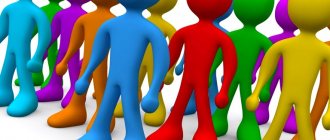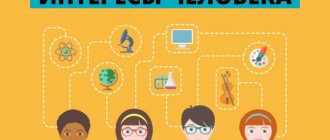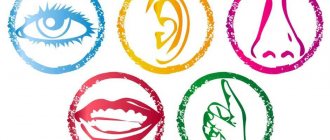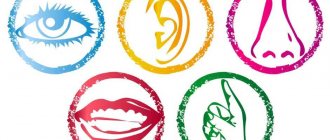In psychoanalysis, the term "character" describes the type of experience and behavior, as well as the individual's pattern of predominant defense mechanisms on the part of the ego. Character types flow into each other, but at the same time there is an accumulation of certain structural elements.
Wilhelm Reich developed his typology of character structures for bodily psychotherapy. Alexander Lowen expanded his theory. Erich Fromm developed a different concept of the psychoanalytic character with explicit reference to Freud's phase model. There are many different typologies, and some of them even contradict each other. Typing based on the Big Five is very popular in the Western world.
Photo by Anna Shvets: Pexels
Most people know the characteristics of extroverts and introverts. This, one might say, is the first dimension of self-knowledge. The second is our perception: do I see the big picture, do I perceive in the abstract, or am I more focused on the details?
The third dimension describes how we make decisions: with intuition or with our heads? And the fourth dimension refers to how we shape our lives, whether we are more structured and orderly or prefer spontaneity. Many techniques are based on this.
In this article:
Personality types: what you need to know about itCharacter types according to K.G. JungJung's theory of types: outdated or still relevant?Personality types according to the Myers-Briggs testFunctions instead of types: the Big Five principle
Main types of characters, their description
Imagination - what is it in psychology, definition
The definition of character types is determined by the following characteristics:
- attitude towards one’s own personality (level of self-esteem, manner of behavior and communication with people);
- attitude towards learning and work (a person can be in a “comfort zone” or constantly grow and develop);
- attitude towards others (empathy and politeness or selfishness and rudeness).
A detailed answer to the question of what kind of character there is was given by the German psychologist and psychiatrist K. Leongard.
Chart of character types in psychology
| Person's character | Characteristic |
| Hyperthymic | Sociable, easy-going, cheerful. Finds a common language with everyone. He quickly makes new acquaintances and easily fits into a new company. But his interest quickly cools. In childhood, such a person is very active and restless. In adolescence, he is arrogant and often behaves demonstratively. He masters the material worse than his peers. |
| Disthymic | The main distinguishing feature is isolation. Such people are often prone to depression or subdepressive states. They are fair, responsible and conscientious. They do not like noisy companies. They value the opinions of loved ones, but often fall under their influence. |
| Cycloid | Character description: the main feature is inconstancy. The mood changes every day. In some cases - 1-2 times during the day. |
| Excitable | Character traits - unsociable, gloomy, bilious and cynical. Prone to rudeness. It is difficult to join the team, does not try to get close to colleagues, and has almost no friends. In a family he can be a tyrant and a despot. |
| Stuck | Characteristic personality traits are sociability, perseverance, and determination. Prefers to lead a team. Such a person is touchy, does not take criticism well, and is prone to revenge. Such individuals sometimes become famous people. He loves to teach others and often does it with pleasure. |
| Pedantic | The main character qualities are demanding, executive, boring and neat. His resume is always perfect. Likes to redo everything in his own way. Such a person is characterized by a manic desire for order in things and affairs. Has difficulty accepting other people's opinions and does not tolerate disagreement. |
| Anxious | This person can be described as timid, indecisive, shy and silent. At the same time, he is distinguished by purposefulness and responsibility. Knows how to make friends. Prefers to avoid conflicts. He is afraid of problems, and when they arise, he tries to shift them onto someone else. Can be very suspicious and attach special importance to trifles. |
| Emotive | Such a person carefully chooses his friends. Usually brings people with similar interests and outlook on life closer to him. He loves his loved ones very much and is distinguished by exceptional devotion. Capable of empathy, knows how to keep secrets. Tries to avoid conflicts, but if this fails, he bursts into tears. |
| Demonstrative | Loves to be the center of attention, to feel loved and significant by everyone. He prefers bright colors in clothes. He has a creative mind, charisma, and is artistic. At school he is often an informal leader, loves to joke, and has a good sense of humor. In adulthood, such people become business leaders, politicians, and actors. |
| Exalted | A friendly, sociable person who knows how to show empathy. Can be a good, reliable friend. In a critical situation, he begins to panic and fuss greatly, thereby irritating those around him. |
| Introvert | Closed, calm, unsociable. Often this is a creative person who is jealous of his own personal boundaries. He perceives even a scream outside the window as their violation. It's hard to get along with people. Prefers to communicate with like-minded people. He becomes very attached to his friends. Around loved ones he is sociable, witty and affectionate. |
| Extrovert | His credo is “Movement is life.” He has charisma, loves communication, tries to surround himself with like-minded people, and is the life of the party. He prefers to spend his time at parties. Can confirm his authority in a rather specific way. |
Fashion style
Clothing, unless, of course, we are talking about a dress code, can tell a lot about its owner.
- Classic. Such clothes are part of the wardrobe of practical people who do not like to waste time on unimportant things. It is unlikely that you will catch them having a frank conversation with a stranger. They always adhere to the rules of etiquette and respect traditions, adhere to the rules accepted in society. People who love the classic style devote all their energy to important matters and strive for a calm and harmonious life.
- Business style. Distinctive qualities - restraint, intelligence. Most often, this style is chosen by intellectuals who devote all their free time to work. Feelings and emotions are not for them. Before making any decision, they think for a long time; they are even accustomed to answering questions not immediately; they need time to think and formulate the correct answer. Such a person will not tell anything about his life to random people, because he is not sure that they will be able to understand their thoughts or actions. Most often they remain alone.
- Sports. It is preferred by people leading a dynamic lifestyle, for whom it is important to be on time everywhere. Energetic, active, easy-going, courageous, and distinguished by their determination. Those who choose a sporty style find it difficult to sit in one place for a long time. They have a daring character.
- Casual style. For a person, the main thing is convenience and comfort. They are rebels at heart, but they try not to show it to society. They have enough inner strength to live the way they want, rejecting all generally accepted conventions. For those who choose this style, jewelry is not important, but they can wear it if it means something. Such a person is difficult to notice in a crowd; he prefers to dress simply and practically.
- Military style. It gives a feeling of strength and determination, adds confidence and helps you feel safe.
Individual and typical traits
Goodwill
The Wheel of Life Balance - what it is and how to work with it
The same character trait may manifest itself differently in different individuals. For example, one person’s courage is reasonable, another’s is reckless. Goodwill can be both sincere and feigned.
Note! The same character trait manifests itself differently in people because their actions and reactions are based on different interests, motivations and motivations. This is what makes character traits individual.
The definition of “typical traits” can mean that each person has specific characteristics. They are determined by age, upbringing and living conditions. All people have individual and typical traits. The typical manifests itself in each person individually.
Characteristics by temperament
Temperament is a constant combination of individual, isolated mental and physiological characteristics of a person, associated with the effective, and not with the meaningful, aspect of actions. It’s kind of difficult, isn’t it? Simply put, this is what determines not thoughts, but behavior in a particular situation.
There are four main types: choleric, phlegmatic, melancholic, sanguine.
- A choleric person is a very bright, fast, passionate person, but completely unable to control herself in critical situations. Frequent outbursts of causeless anger, sudden impulses, constant mood swings - all this is an integral part of the life of any choleric person. Such people rush into something headlong, without planning anything, and very soon they get tired of it and begin to irritate them. They are terrible brawlers, debaters, they will never allow themselves to agree with someone else’s opinion, even if it is at least three times correct, and the choleric person himself does not understand this topic.
- A melancholic person is the exact opposite of a choleric person. Melancholic people are very vulnerable, emotional, and are easily brought to tears. They are constantly in a state of anxiety or worry. It is difficult for them to control their emotions, especially in critical situations, and they worry about every action taken. Alone with themselves, they are calm, often dream about something, and analyze their actions. They are diligent, but sometimes worries or extraneous thoughts interfere with their work. It is difficult for melancholic people to make connections with others, as they are very shy and picky about themselves.
- Phlegmatic - “calm, like an ancient oak on a hot summer day” is the whole essence of this temperament. Phlegmatic people are infinitely calm, unperturbed, it is difficult to get any emotions from them, because they do not worry about any events or actions. They are unhurried and can slowly wander down the street all day, immersed in detached thoughts. Phlegmatic people are very productive at work, because they are not distracted by anything in any situation. They fully compensate for their slowness with the quality of their actions. They learn everything new well.
- A sanguine person is a truly living person. Sanguine people are mobile, impressionable, and hot-tempered. Their impressions constantly change. They have expressive facial expressions. A sanguine person is easily drawn into the whirlpool of events around him, instantly reacting to everything that happens. Very efficient people. If the activity interests them, they will immerse themselves in it, but if not, they will not pay attention. Sanguine people are considered the easiest to train people.
Positive and negative traits
How to quit smoking during pregnancy - is it possible to quit abruptly?
The character of every person has positive and negative sides. Depending on the situation, the same character trait carries a different message and is perceived differently.
As an example, we can consider such a character trait as determination. If a person occupies a leadership position, then this trait benefits him and his loved ones. At the same time, in the eyes of other people, such a person may look tough, assertive and arrogant.
Common Positive and Negative Traits
| The good side | Bad sides |
| Kindness, sociability, compassion, sensitivity, diligence, perseverance, curiosity, accuracy, optimism, resourcefulness, easygoingness, openness, peacefulness. | Authoritarianism, aggressiveness, gambling, apathy, carelessness, indifference, ruthlessness, unceremoniousness, talkativeness, frivolity, lust for power, suggestibility, vulgarity, stupidity, pride, greed, forgetfulness, dependence, envy, laziness, deceitfulness, pettiness, vindictiveness, arrogance, arrogance, annoyingness, negligence, touchiness, narrow-mindedness, vulgarity, irritability, wastefulness, jealousy, self-confidence, grumpiness, cowardice, vanity, stubbornness, selfishness. |
Among women
good mother
A girl or woman can act in several roles. There are priority sides for each of them. The list of the most necessary traits for a woman includes such properties as:
- goodwill;
- wisdom;
- reliability;
- devotion;
- communication skills.
There are also a number of traits that a woman needs depending on her role in society.
Character traits of a woman, depending on her role in society
| Role | Necessary character traits |
| Spouse | In relation to the spouse - sensitivity, sensuality, caring, kindness, decency, ease of communication, attractiveness, fidelity. |
| Mother | Patience, kindness, sensitivity, caring, warmth, kindness, affection. |
| Girlfriend | Empathy, optimism, initiative. |
Note! There are also certain features inherent in a particular profession. Women doctors must be determined, patient and compassionate. Women in the military have a responsibility to be tough.
In general, in society there is no such thing as an “ideal woman.” Some believe that a modern lady should be purposeful, independent and ambitious. Others believe that a woman is obliged to cultivate “natural” qualities in herself: meekness, mercy, compliance.
In men
According to the public, a real man should be a good provider and protector.
A number of traits needed by a representative of the stronger sex
| Role | Required Character Traits |
| Spouse | Kindness, enterprise, generosity, accuracy, activity, sex appeal, loyalty, perseverance, tenderness, erudition, passion, caring. |
| Father | Patience, attentiveness, sense of humor, authority, caring, kindness. |
| Worker | Collectivism, hard work, diligence, creativity, punctuality. |
| Friend | Reliability, openness, empathy, loyalty. |
Strength of character
Here it is appropriate to note what strength of character is. This is the stability of traits, the ability to develop and transform them.
A strong character is also called strong-willed, which presupposes a person’s ability to “pull himself together,” go towards the intended goal, achieve what he wants, maintain discipline and fulfill the promises he makes to himself and others.
This strength is related to the temperament of the individual. For example, a sanguine person has a stronger character in contrast to an anxious melancholic person.
Author of the article: Liliya Sergeevna Kovalenko (psychologist)
Good luck to you! See you soon on the blog pages KtoNaNovenkogo.ru
Comments and reviews (4)
«>
Thank you very much. Very helpful for my essay
«>
Thank you. Very interesting. I knew these types for a long time, but couldn’t figure out who I was. And I understood the blog of your article. Thanks again
«>
The main thing is not to confuse character traits with spoilage and unhealthy selfishness. And now it has become very fashionable to call any whim, including laziness and narcissism, personality traits.
«>
What is strength of character? This concept is very subjective, it is just someone’s assessment based on an inaccurate perception of the reality around us.
If there had once been people with a weak character, they would all have died out without leaving any offspring, but, as we see, melancholic people are still more alive than all the living, which means they also undergo natural selection and know how to find their place in the Sun.
Rice. 22.2. Classification by mental processes
□ attitude towards people
(sociability, sensitivity, politeness, egoism, altruism) (Fig. 22.3).
Rice. 22.3. Classification by personality orientation
Character typology is based on the assumption that people have certain typical traits that are common to a certain group of people. In this sense, a character type is understood as the expression in a person’s individuality of traits that are typical for a group of people with a given character. Available typologies of character are based on certain postulates:
□ human character is formed early in ontogenesis;
□ character changes little throughout life;
□ combinations and combinations of character traits belonging to a certain type are natural and not random;
□ people can be divided into several groups according to their character,
The structure of character largely corresponds to the structure of personality. Here we can distinguish several levels, the lower of which will have more biological, and the highest - more social.
If we consider character from the highest level to the lowest, we will find:
□ beliefs
(principled or unprincipled, optimistic or pessimistic);
□ needs and interests
(if spiritual needs dominate, then curiosity and selflessness; if material needs, then stinginess, envy);
□ intelligence
(flexibility or rigidity of thinking);
□ will
(independent or dependent, decisive or indecisive character);
□ feelings
(irritable or calm character);
□ temperament
(sociable - unsociable, balanced - unbalanced).
Sources used:
- https://zaochnik.com/spravochnik/psihologija/obschaja-psihologija/harakter-i-ego-aktsentuatsii/
- https://pikacho.ru/harakteristika-tipov-temperamenta-cheloveka/
- https://ktonanovenkogo.ru/voprosy-i-otvety/harakter-chto-ehto-takoe-cherty-tipy-vidy-haraktera-cheloveka.html
- https://studopedia.ru/4_128572_klassifikatsiya-chert-haraktera.html
How are strengths different from weaknesses?
Wit
All weaknesses can become strengths if you look at them from a different angle. For example, a person is restless. If he works as a sales manager or sales representative, then this is rather a plus rather than a minus.
Another example is non-conflict. Getting along is considered a positive character trait. On the other hand, there are people who simply need to be put in their place, and this sometimes requires going into conflict.
Regardless of gender and activity, there is one universal character trait that is strong in any case. Unfortunately, it is not inherent to everyone. This is a sense of humor. A witty person can always get out of a difficult situation. Such people are usually respected and people try to be friends with them.
Important! Wit often borders on sarcasm, sometimes on cynicism. Care must be taken because it is a very fine line.
Online tests to determine personality types
The most accessible way to determine your personal psychotype is online tests that anyone can take using the Internet. Most tests are aimed at revealing a person’s internal potential, his ability to interact, and behavioral characteristics among close people.
There are also many modern classifiers for a variety of specific tasks.
Examples of online test categories:
- Multifactorial methods for personality research (Cattell test).
- Projective tests (Luscher color test)
- Leonhard tests for determining personal accentuations.
- Tests for temperament research (Eysenck, Strelyau).
- Questionnaires for intelligence research (IT intellectual potential test).
- Tests for research in various fields of activity (Torrance test)
- Methods of self-satisfaction, life values (Muddy's vitality test).
Personality typology is receiving more and more attention in practical application. Specialists from all fields of activity are turning to the latest achievements of psychology. Methods for unlocking individual potential are being improved every day and allow us to understand the essence of a person with great accuracy.
What role does character type play in a person’s life?
The definition of character type is not static. Depending on various influences, it undergoes changes that can be both weak and quite strong.
The desire of the person himself also plays a role: if he is not satisfied with one or another character trait, then by working hard on himself he will be able to make the necessary adjustments.
Some people believe that they have achieved success and influence because of their character. Others believe that character is an obstacle to achieving certain goals (here the conflict between desires and abilities comes to the fore).
Sometimes a change in character helps to improve results in a certain area of activity. At the same time, the situation is worsening in another area. A classic example is that a person who has achieved success in business loses the love and respect of loved ones.
Sometimes authoritarian individuals with a tough, strong character fail in all areas. At the same time, a soft, compliant person can adapt to any life circumstances.
Jung's personality typology
Jung, following the philosopher Kant, builds his typology in order to reveal the means to personal development. He deals with his patients, for whom typology can help overcome psychological difficulties, but Jung classifies both himself and healthy people as typable. Jung does not hide his analysis, unlike the diagnostic map of accentuations according to Gannushkin and Lichko, from his patients.
Jung, looking through the history of art, music, poetry, philosophy, notices that people are usually identified in pairs, for example, rational and emotional. In this pairing he sees an important meaning, and makes his main discovery - just like natural counter-directional forces, for example, stretching, compression, exhalation, inhalation, two opposite directions can be distinguished in the psyche, settings for extraversion and introversion.
Both directions are present in the psyche of each subject, but one of them always prevails. Jung explains this through the psychoanalytic construct in which one attitude is present in consciousness, and its opposite is present in the unconscious. Jung's idea here, however, is to balance yourself.
Further, Jung identifies another dichotomy, thinking and emotions opposed to each other, then talks about the dominant mental function. He finds another pair of characteristics, sensory-intuition. He considers all these functions to be unbalancedly present in the structure of the psyche; one of them always dominates.
Sensory is a sensation, our perception of how the action of our action occurs. Emotion is associated with the acceptance of a perceived event on an emotional level. Thinking allows you to comprehend the situation. Intuition, which according to Jung denotes the ability to anticipate the consequences of an action, its future results, is associated with the ability to imagine.
Jung could be followed by another author, Lazursky, who, along with the identification of types, considers the levels of development. This attempt is present, although it is far from indisputable.
What is a complex character in a person?
Toxic person
What kind of character can be called complex? Such people are usually called toxic. They consider themselves perfect and self-sufficient. This results in their dismissive, arrogant, and sometimes contemptuous attitude towards people.
They are characterized by suspiciousness. They can see a catch in simple actions; they constantly feel that they want to insult or humiliate them. In public they can be easy to talk to and very charming. The severity of character spills over into loved ones and colleagues.
Main types of toxic people:
- Hostile (typical traits - rudeness, arrogance, aggressiveness);
- Hidden aggression (outwardly friendly, such people often make harsh remarks at others). They tend to exquisitely mock others;
- Complainers (such people constantly whine). They see nothing good in their lives or in the world. The main features are narrow-mindedness, stubbornness;
- “Nihilists” (such people like to criticize everyone except themselves);
- “Unrecognized geniuses” (they are sincerely convinced of their importance, they do not take criticism towards them well).
Handwriting
Graphology is a science that studies all the diversity of handwriting. It says that there are no absolutely identical handwritings, but all of them can be conditionally combined into certain groups according to certain criteria. As it turns out, people with similar characters have similar ways of writing signs and letters.
Absolutely everything affects the characteristics: the size of the letters, their shape, slope, distance between them, spaces between words, pressure on the paper, indentation from the margins.
- The size of the letters speaks of the openness of nature. If the letters are large and sweeping, then you have a creative person in front of you. Such people are usually impulsive, quick to act, pay little attention to details or advice, and are more interested in the goal. By nature they are warriors, rebels, who disagree with society. But small symbols speak of a person’s secrecy, the closedness of the soul. Such natures are very stubborn, have good mental analysis skills, are friends with the exact sciences, but prefer their company to a crowd of people. Very small letters indicate scrupulousness, even greater secrecy and detachment.
- The shape of the symbols characterizes the social character of a person. Owners of angular icons are most often stubborn people who disagree with other people's opinions. They fight for their complete independence from others, but at the same time they are very faithful in friendship. Those who prefer smooth transitions and roundness of symbols are soft, warm-hearted natures. They are always ready to lend a hand to someone in need, they know how to calm and give advice. People who combine different forms are ideal inhabitants of society, since they combine vital energy with kindness and strength of mind.
- Pressure on paper plays an important role when analyzing characteristics. So strong pressure is typical for choleric people, who like to constantly prove something, argue, keep promises, and set goals. And dim letters on paper speak of uncertainty and anxiety of melancholic people.
- Spaces between words, as well as margins, indicate the ability to share. Greedy people can produce handwriting with small spaces and indentations from the margins, it seems as if they feel sorry for the paper. Large indentations indicate the generosity of nature.
How does temperament differ from character?
Temperament is a set of certain properties of the human psyche. They influence human behavior and activities. The nervous system is responsible for temperament. It is given to a person from birth.
Character is certain human qualities that are manifested in his relationships with the outside world. Character traits are formed under the influence of external factors.
The type of character, as well as a person’s temperament, influence the choice of profession. Predisposition to a particular type of activity is also taken into account.
Features and methods for determining psychotype
Determining the psychological characteristics of a person for certain purposes is the responsibility of a separate branch of psychology - psychological diagnostics. To determine psychotypes, various methods are used: tests, questionnaires, conversations.
Psychological consultations provide a specific person with knowledge that helps them better understand a certain situation, as well as adjust their actions in it. Modern psychology has a number of studies that make it possible to determine psychotypes by appearance, habits and a number of other characteristics.
Psychodiagnostic methods are classified according to several parameters:
By type of task:
- projective;
- multifactorial;
- accentuation;
- physiological;
- effective.
By form:
- blank;
- computer;
- sensory.
To address:
- conscious;
- unconscious.
Video
Coffee capsule Nescafe Dolce Gusto Cappuccino, 3 packs of 16 capsules
1305 ₽ More details
Coffee capsules Nescafe Dolce Gusto Cappuccino, 8 servings (16 capsules)
435 ₽ More details
The best telescopes











